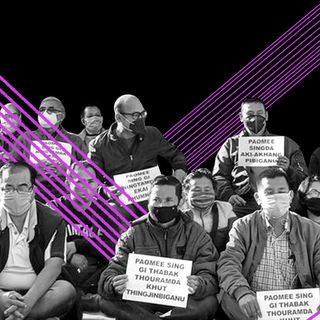A report commissioned by the Ministry of Social Justice has recommended that caste surnames or any details that reveal religious or social backgrounds of candidates should not be disclosed in civil services and other central or state-level examinations during interviews, as it increases chances of discrimination, according to ThePrint.
The report, created by the Dalit Indian Chamber of Commerce and Industry (DICCI), stated that the chances of discrimination were particularly high at the stage of personality test or interview in the process of selection through competitive exams into civil services and other government jobs.
The report, which focused on the progress of Scheduled Castes in civil services for the past seven decades, recommended that a policy to prohibit candidates from writing their names and other personal details on their answer copies should be implemented, and extended to all recruitment. It will help in checking deliberate discrimination and prevent socio-religious bias in the evaluation of answers, the report states.
Related on The Swaddle:
How Tollywood’s Two ‘Rival’ Castes Work Together to Maintain Industry Power
Former IAS officers have also come forward to emphasize the heavy caste bias that is still rampant in civil services. Multiple studies in the past have found that interviews for jobs in the private sector, too, have a heavy caste and religious bias, and candidates belonging to Dalit, Adivasi, or Muslim communities are often actively excluded from positions during the interview stage.
Thus, interview boards of selection agencies should not be made aware of the background of candidates to ensure objective assessment, recommends the report. The board will then, thus, award marks purely based on interview performance which will lead to the selection of meritorious candidates across all categories, the report adds.
It also recommended reservations in the private sector to give the repressed sections of the society job security that was on par with that given to the upper caste-class sections.
In addition, it also suggested that vacancies in reserved seats for SCs need a special recruitment drive. The immediate need of the community is to build on the intellectual capital of members to fill gaps in the reserved posts in universities, judiciary, research, and so on, the report adds.
It also stated that government should consider sponsoring national and regional Dalit media channels and the state should strengthen its mechanisms to ensure that the funds allocated for Dalits were utilized properly, and not diverted. “Every year there is a good budgetary allocation,” DICCI founder-chairman Milind Kamble told ThePrint. “What happens is that perception is created that so much is happening for the welfare of the SC/STs. But at the final tally, very little is utilized. Hence, the wrong perception gets created. To avoid that, a strong monitoring mechanism is required.”




